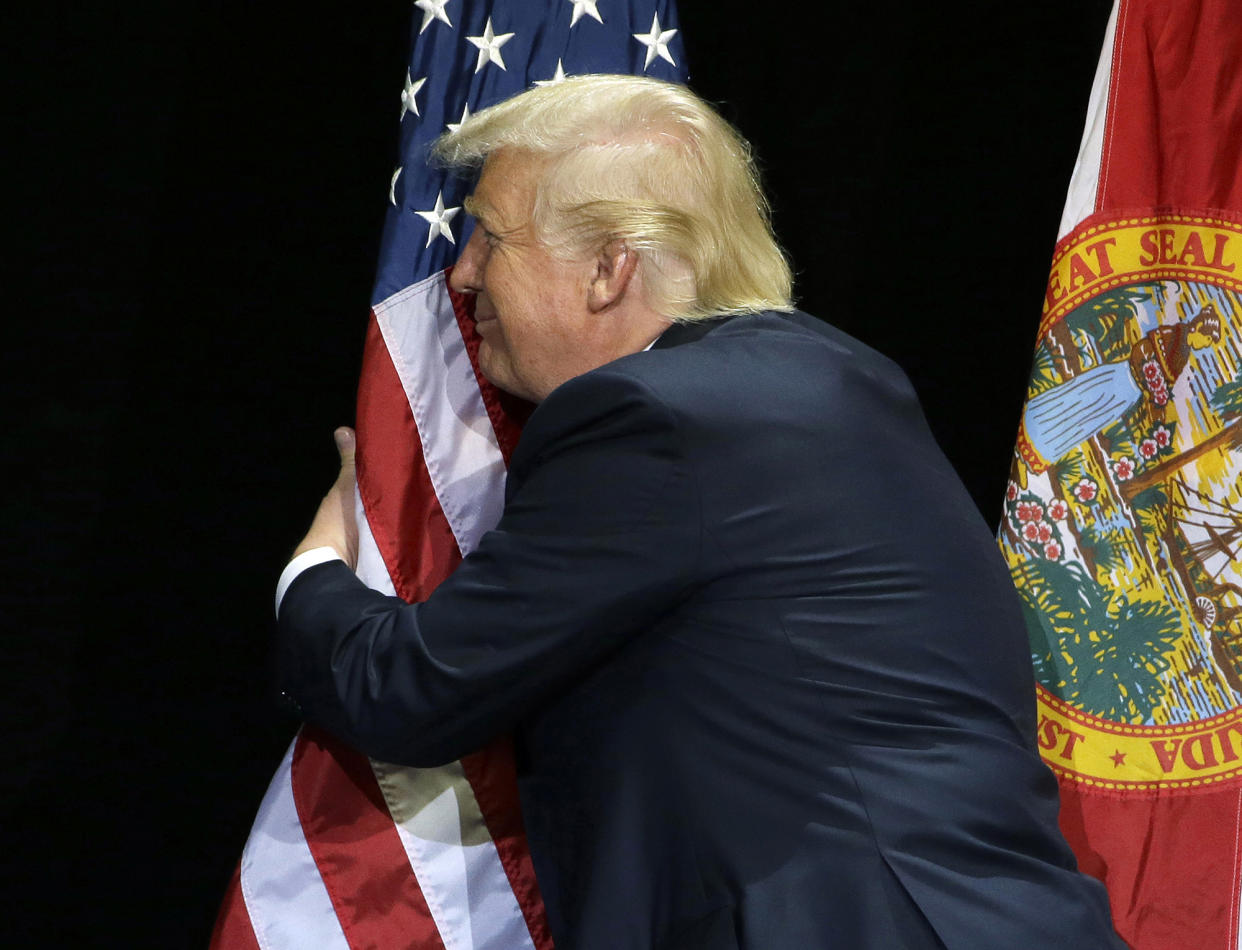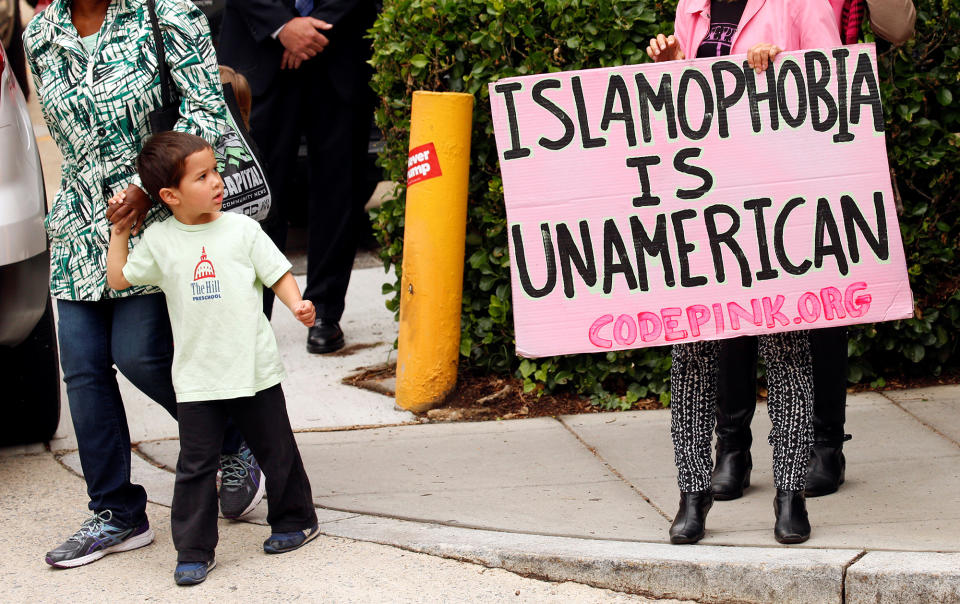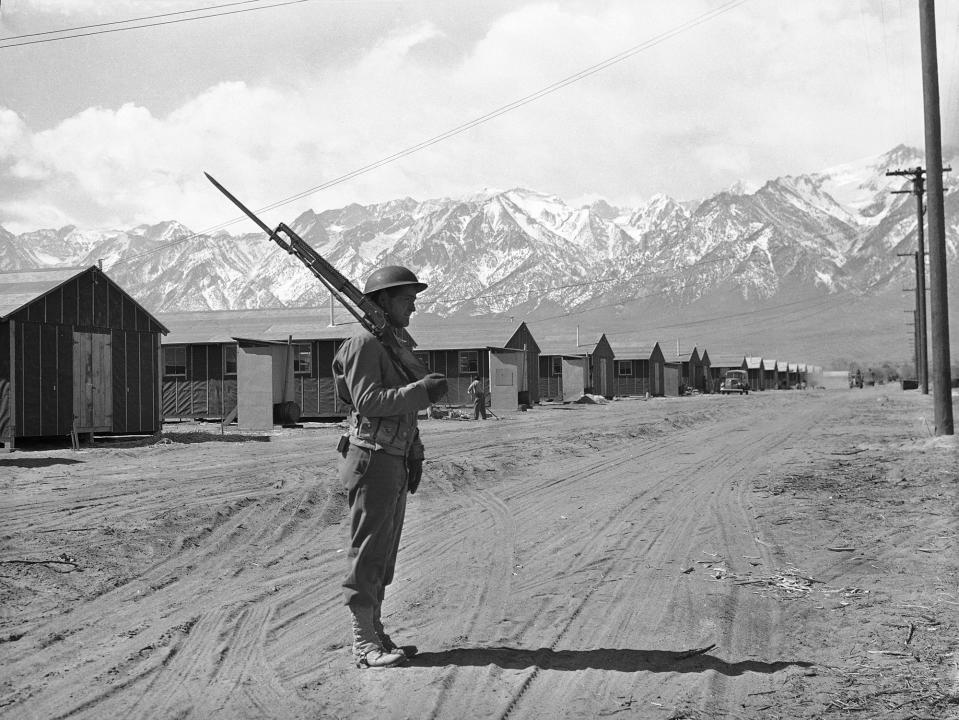Who's 'un-American' now?

With Democrats and even many Republican leaders deriding Donald Trump for his response to the Orlando attacks, the 2016 election is now more than a choice between two candidates. It’s also a referendum on what it means to be American, or, in the stinging idiom of bitter 20th-century debates, “un-American.”
Trump last week seemed determined once again to tap deep fears of terrorism. That’s what he successfully did after the mass shootings last December in San Bernardino, Calif., when his popularity surged. But this time it didn’t work. A CBS News poll showed Trump trailing Hillary Clinton by seven points on handling terrorism.
While public opinion could shift once more if terrorists strike again before the election, it may be that larger structural and rhetorical changes in American politics are underway. In an ironic historical twist, the usual advantage that more hawkish Republican presidential candidates enjoy in these situations seems to be shifting — at least this year — to Democrats.
For days, a calm and purposeful Clinton has appeared more in tune with patriotic values than Trump, whose proposed ban on Muslim immigration and incendiary tweets and speeches are striking large numbers of Americans as unconstitutional, unwise (in terms of getting the cooperation we need to catch terrorists) and — in his implication that President Obama knew about the attacks in advance — a little unhinged.
It’s hardly surprising that Democrats from Obama to Clinton to former Secretary of State Madeleine Albright would add another “un” to that list: “un-American.” But Sen. Mark Kirk, an Illinois Republican facing a tough reelection fight in a blue state, also employed that wounding word in reference to Trump’s ideas on immigration when he announced, before Orlando, that he couldn’t support his party’s standard bearer.
Most Republican leaders aren’t going that far, but they’re moving to put distance between themselves and the presumptive nominee on core national security issues. In a rare moment of agreement with a president they routinely demonize, Ryan, who still supports Trump despite calling his attack on a federal judge “racist,” and a growing number of his colleagues now agree that Trump’s ban on Muslim immigration is irrelevant (the gunmen at Fort Hood, San Bernardino and Orlando were all American citizens) and out of step with long-standing American ideals.

If present trends continue and Clinton wins convincingly, historians may conclude that Trump’s coarse and paradoxically anti-American nationalism boomeranged on him and the party he took control of in 2016. They may look back on this campaign as the beginning of a significant shift in how we view our politics and ourselves.
Part of the change is demographic — the United States will be a “majority-minority” nation within 25 to 30 years, making appeals to xenophobia a losing proposition.
Part of it is cultural — the recent death of Muhammad Ali offered a reminder that even a defiant Muslim boxer who risked jail to avoid service in the Vietnam War could become an American folk hero.
And part of the shift involves a different understanding of what it means to be patriotic — a more inclusive definition that respects dissent, as Obama argued last year on the 50th anniversary of the march from Selma to Montgomery, and recognizes how major social movements have made us stronger.
Trump’s long history of flinging bitter insults is at odds with this consensus. While he makes a show of hugging the American flag, he’s been running down the United States since Ronald Reagan was president, berating the government even then for being “losers.”
Recall “America — Love It or Leave It,” the patriotic bumper sticker popular among conservatives in the 1960s. Trump’s slogan, “Make America Great Again” — implicitly suggests we leave it. He’s saying America is no longer a great country and won’t be great “again” until we return not just to a better economy but to an exclusionary past many Americans are happy to see in the rearview mirror. The constant carping makes it harder for him to sell the patriotic message that he’s the candidate who loves his country most.
Amid the nastiest campaign in memory, we may be seeing hints of a new period of tolerance and common sense. As the historian Arthur M. Schlesinger Jr. argued, American history moves in cycles. In this case, the cycle looks to be from fearful nativism to a calmer openness represented by Obama, who is more likely than Trump to be seen as the iconic political figure of this era.
Of course, it’s often hard to see the cycles we’re living through until decades later. This is especially true when confronting deep questions of national identity. For more than a century — from the “Know Nothing” nativism of the 1850s to the “nation of immigrants” impulses of the 1960s — fear-mongering “Americanism” was frequently seen as the default position in American public life.
When Congress — in a Trumpian move — excluded Chinese immigrants from the U.S. in 1882, the law remained in effect for 60 years without much complaint from anyone who wasn’t Chinese.
When, after a period of record immigration at the turn of the century, Congress in 1924 greatly restricted immigration from nonwhite nations, it took 40 years before Lyndon Johnson and Congress in 1965 outlawed the old quotas. (This bill ultimately changed the face of the country, the origin of the demographic changes that underlie today’s Obama coalition).
When the Roosevelt administration placed Japanese-Americans in internment camps during World War II, it was four decades before the Supreme Court reversed the Korematsu decision and declared the policy unconstitutional.

And when politicians like Martin Dies, Pat McCarran and Joe McCarthy tarred hundreds of suspected subversives with the brush “un-American” in the 1940s and 1950s, the stigma in some cases lasted right through the end of the Cold war.
At first glance, we’re again at risk of returning to reactionary business as usual. The 9/11 attacks ushered in 15 years of increased surveillance and restrictions of civil liberties under the Patriot Act. So it wasn’t surprising that after Orlando, former House Speaker Newt Gingrich — reportedly on Trump’s short list for vice president — called for a revival of the House Un-American Activities Committee. Gingrich wants the new committee to take aim at American citizens who might be secretly working for ISIS.
It’s not just that the original HUAC and similar congressional committees ruined the lives and reputations of hundreds of unfairly targeted people and did almost nothing to root out genuine threats to national security. The old fear-mongering approach is also counterproductive. Imagine today’s “Un-American Activities” investigators getting in the way of FBI undercover operations and plastering mosques with subpoenas. This would hamper the cooperation that law enforcement officials say we need in Muslim communities to crack terrorism cases.
The public apparently understands this, even post-Orlando, which is why Gingrich’s proposal was met with thunderous silence. Instead, a bipartisan pushback against stigmatizing American Muslims is underway, driven in part by polls. For now, anyway, Americans prefer a measured, reassuring response to name-calling and unfounded accusations.
Which is why Democrats should be careful with their own use of the “un-American” insult. The charge may be merited in the case of Trump’s Muslim ban, but it needs to be reserved for politicians like him who wander far out of bounds.
The good news is that as we grapple with how to respond to the ravages of lone-wolf terrorism, we are unlikely to see the witch hunts of old. After the noise of Trump subsides, we may yet enjoy a more nuanced debate over which actions conform to our highest American ideals, and which do not.

